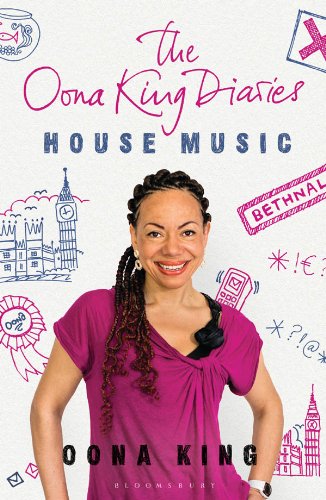I support electoral reform on a point of principle. I don't support it because it means my party wins more seats - although it's likely the left would gain. I support it because I believe in representative democracy. But in making the case for reform it's important to consider whether 'fair votes' could let in the far right. This is a legitimate concern for all on the left who want a more democratic electoral system.
What I'm about to say isn't easy to write, not least because I value my colleagues in the electoral reform movement. But here goes: it's quite easy for a group of white people who have never experienced the terror tactics of BNP supporters or the sharp end of race attacks, to decide that the threat of the extreme right under PR is 'exaggerated'. Where I live in London's East End, the prospect of the far right winning power under any electoral system is extremely frightening. The death-threats I've received from extreme-right groups have done nothing to make me think they need a helping hand. And so I understand why many, if not most, people from ethnic minorities instinctively react against a PR system which might be seen as 'giving them a platform'. Let's be clear, the far-right has a profoundly anti-democratic message which strikes at the core of our democratic society. We must (and we do) impose limits on them peddling their vicious xenophobia.
That's why I don't support any reform of the voting system that would give the far right greater advantage than they currently have. Rather, I specifically support a system of electoral reform that is not pure PR. It is called the Alternative Vote plus (AV+) and we know that it is unlikely to lead to far-right MPs being elected. For example if AV+ had been used in France, Le Penn wouldn't have made it to the second round. Under the AV+ system, for any politician to get elected locally, they require support across a wide area and not just in a particular pocket. Under the PR system that was used in the European elections in 1999 the BNP didn't get in. So it's important not to jump to conclusions about what electoral reform means for the far right and the impact it might have on our democracy.
In fact, the system that gives the far right a chance of winning seats in Parliament is the one we have now, first past the post. A constituency has already been won, Inverness in 1977, by a candidate with only 26% of the votes. In a fractured seat it is perfectly conceivable that a candidate from the far right could win a first past the post election with 20% of the votes. Under AV+ nobody can win a constituency seat unless they have more than 50% of the electorate supporting them. And we've seen this work in Australia in the face of Pauline Hanson, the 'popular extremist'. She did in fact win 37.6% of the votes in a constituency but she lost her seat because under the AV system, although she headed the first ballot, when the second preferences of people in that constituency were distributed, she lost. PR contributed to a major setback for the far right in Australia.
Moving on to the 'plus' part of the AV system, it is true that it creates 'top ups' for parties who are under-represented in a constituency. That would mean that it is just possible for a party to win a seat without a huge share of the vote. The absolute minimum share of the vote they would need to win even a single seat would be 10% and it would usually be more, 12 or 13%. But the key point is that it's not just 12% in one little constituency area where there may be a candidate who somehow seizes local opinion. These top-up seats range over large towns or areas, and the far right has never got anywhere near the necessary votes across a wide geography to win on this basis.
So the fear of letting in the far right through reform doesn't have to be realised if we are careful about the system we pick. We can have fairer votes without the threat of the right. But reform offers more. Not only can it legitimise voting and politics by helping to ensure that everyone's vote counts, it also offers a route into the political system for those currently alienated and marginalised by first post the post. At the last election there were 10 black or Asian men elected, only two black women, and not a single Asian woman. If we had a truly 'representative democracy' there would have been 40 or so ethnic minority MPs - 20 men and 20 women. When I was elected in 1997 there were more men in Parliament called John than there were women. Eighty per cent of MPs are still white men. With its 'top up' system AV+ provides an opportunity to ensure that under- represented groups in Parliament, such as the black and Asian community, and women, are fairly represented. We can literally change the face of politics and make it a reflection of modern Britain.
So electoral reform is about the very socialist concept of equality. Not just in terms of representation, which helps us fight the threat from the right, but also in terms of the priorities that it allows us to set. Under first past the post all the focus is on middle England to the detriment of more deprived areas. Parties are forced to take on the agenda of the swing vote and the marginal seat. The already alienated classes of black and white youths become slowly more marginalised because an issue such as housing - perhaps the single greatest factor feeding race problems around the country - slips down the agenda. Our current electoral system encourages the mainstream political class to ignore the issues that are of greatest importance to poor black people and poor white people. That's what helps racists win others over to their cause.
I have never believed electoral reform is a panacea. However, it can help re-legitimise politics, allow the left to focus on what it cares about, and create more equal representation without letting in the far right. At the end of the day the left must win the argument. Whether we like it or not (and I like it) that's how democracy works. If a substantial section of an electorate sympathise with the far-right, no amount of jiggery pokery with an electoral system will disguise the view of the people. In local elections in Tower Hamlets (July 2002) the BNP vote fell to less than 100. The far-right needs to be crushed by the weight of reason, and the delivery of electoral promises. It would be a travesty if we sacrificed representative democracy because we were afraid of the BNP.
So yes, it is easy for white people who have never experienced the terror tactics of the BNP to dismiss the threat of the far-right under PR. It is harder, but even more important, for black people - following reasoned examination of the facts - to decide that we're not afraid of the BNP, and that we won't allow that fear to scupper electoral reform. Let's see more democracy, let's see more black faces and women in parliament, and let's thrash the far-right to within an inch of their sorry electoral lives.
Published by Make My Vote Count, the Labour campaign for Electoral Reform in 2005

